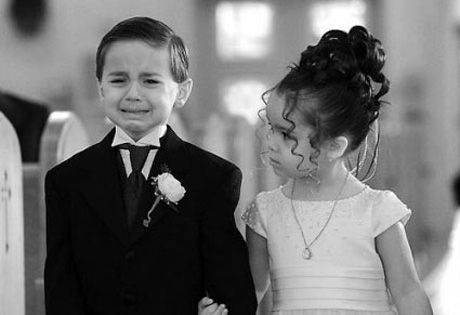New publications
Pre-wedding doubts are the first symptom of a failed marriage
Last reviewed: 01.07.2025

All iLive content is medically reviewed or fact checked to ensure as much factual accuracy as possible.
We have strict sourcing guidelines and only link to reputable media sites, academic research institutions and, whenever possible, medically peer reviewed studies. Note that the numbers in parentheses ([1], [2], etc.) are clickable links to these studies.
If you feel that any of our content is inaccurate, out-of-date, or otherwise questionable, please select it and press Ctrl + Enter.

Do we need this wedding? Do we love each other? What kind of life awaits us ahead? If you have ever had such thoughts in your head, then you should think about it seriously and decide whether you need this relationship at all.
It is better to repeat the scenario of the popular movie "Runaway Bride" than to spend the rest of your life trying to escape from yourself and your chosen life partner.

Scientists have conducted the first study to test whether pre-wedding doubts are a predictor of unhappy marriages and eventual divorce.
Psychologists from the University of California claim that when a bride or groom has doubts, it often signals an unhappy marriage and the collapse of the relationship. Uncertainty and anxious thoughts that can visit on the eve of the wedding are a real forecast for family life. Often these doubts are confirmed later, and the way out of the situation is either divorce or life in a marriage that only wears out nerves and makes spouses enemies.
“People think that a little bit of uncertainty is always present before a wedding, but this is just a fantasy caused by the excitement of the big event,” says Justin Lovner, a psychologist and the lead author of the study. “Yes, it’s true that many people feel a little bit of uncertainty about their choice, but it’s not as simple as it seems and there’s little good in it.”
Women who have doubts about the correctness of their actions before the wedding risk ending their family relationship in divorce 2.5 times more often than those who did not have such doubts.
It also affects the quality of life in marriage: among couples where one of the spouses experienced insecurity, there are significantly more who are dissatisfied with the relationship.
"We choose our life partner ourselves, we will live with this person for many years, no one knows him better than we do. Listen to yourself, if something worries you, do not drive away these thoughts like annoying flies," the researchers say.
The specialists observed 464 newlyweds (232 couples) for four years, from the first month of married life. The average age of men was 27 years, and the average age of women was 25 years.
The survey showed that 47% of husbands and 38% of wives had doubts before the wedding. Despite the fact that the number of doubting men in this matter outweighs women's uncertainty, nevertheless, the ladies had more extensive hesitations and reflections, up to the point of breaking off relations with their betrothed forever.
Among women who were open about their pessimistic attitudes, 19% had forgotten their worries after four years of marriage, compared with 8% of those who did not report their doubts.
Among men, 14% of those who admitted to premarital hesitation divorced four years after marriage, compared with those who did not report feeling unsure about their significant other.
Doubt turned out to be a decisive factor, regardless of whether the spouses were satisfied with their family life and whether they lived well before marriage.
36% of couples had no doubts about their choice and only 6% of relationships broke up. Marriages where anxious thoughts visited future husbands were not always happy either – 10% of such unions also collapsed. If the bride was the doubting party, such relationships broke up in 18% of cases. When both partners had uncertainty, couples divorced in 20% of cases.
"When you feel unwell and something hurts, you go to the doctor, and don't bury your head in the sand like an ostrich. You also need to deal with your worries and doubts - face the truth. You don't count on children and time to change everything and life will get better again," the researchers say.

 [
[